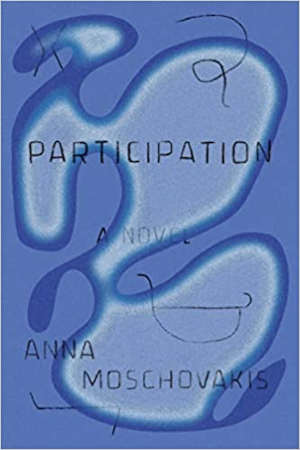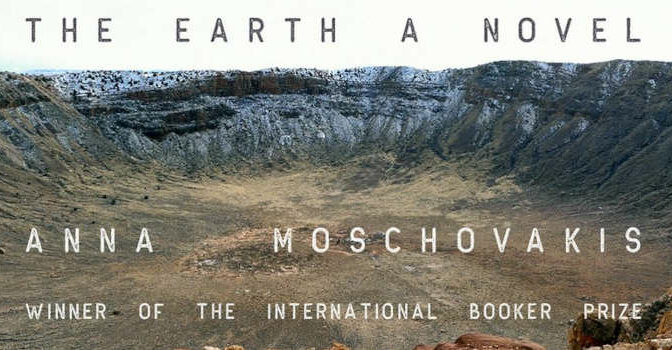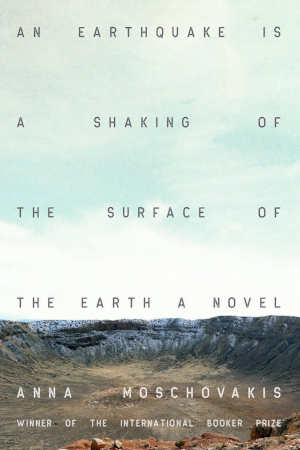Anna Moschovakis Participation recensie en informatie over de inhoud van de Amerikaanse roman. Op 8 november 2023 verschijnt bij uitgeverij Coffee House Pres de nieuwe roman van de Amerikaanse schrijfster Anna Moschovakis. Er is geen Nederlandse vertaling van het boek verkrijgbaar of aangekondigd.
Anna Moschovakis Participation recensie en informatie
Op deze pagina kun je de recensie door Tim Donker vinden van de roman Participation. Het boek is geschreven door Anna Moschovakis. Daarnaast zijn hier gegevens van de uitgave en bestelmogelijkheden te vinden. Bovendien kun je op deze pagina informatie over de inhoud van de roman van de Amerikaanse schrijfster Anna Moschovakis.
Recensie van Tim Donker
& ziet: daar lopen ze: bewondering en teleurstelling. Hoe ze daar gaan, hand in hand. Hoe ze het zonlicht weerkaatsen, hoe de glans, hoe het bijna liefde is, hoe het bijna dans is, hoe het bijna geluk is. Eindelijk de lege weg. Eindelijk bewondering en teleurstelling. Eindelijk lopend, eindelijk gaan. Je kunt niet anders dan kijken tot je ze niet meer ziet.
Anna Moschovakis. Ja die kende ik wel. Als dichter voornamelijk. Ofnee. Alleen als dichter. They and we will get into trouble for this behoort tot de beste dichtbundels de ik ooit gelezen heb. You and three others are approaching a lake meen ik ook gelezen te hebben, nee besproken zelfs, in een elders, in een toenmalig. Maar ik kan het maar weer eens niet vinden, hoe zit dat met mij en al die boeken die ik meen gelezen te hebben maar niet meer kan vinden in die boekenkasten van mij. De romancier Anna Moschovakis openbaarde zich al met Eleanor, or The Rejection of the Progress of Love uit 2018 maar die is even onder mijn radar doorgevlogen geloof ik. Het pakt niet altijd goed uit als dichters romans gaan schrijven (of romanciers dichtwerken), maar in Moschovakis had ik het volste vertrouwen. Moschovakis bewonder ik diep en acht ik hoog. Gewoon omdat ze Moschovakis is. En boeken schrijft die alleen Anna Moschovakis schrijven kan.
Zitten, de eerste avond. Ik had het boek vers in handen. Dit boek, deze Anna, dit Participation. Het eerste doorbladeren, de vingers trillen dan altoos een beetje, stelde niet teleur. Ik zag corpsgrootte verschillen, ik zag pagina’s met ontbrekende woorden, ik zag veel paginawit, ik zag stukken tekst de vorm hebben van een gedicht, ik zag pagina’s met alleen maar losse woorden onder elkaar, ik zag korte hoofdstukjes, ik zag kleine schetsjes, ik zag een zin die sprak en zei: “we were lovers and friends but it wasn’t enough” en dat vond ik een moje doch ietwat tragiese zin, ik zag een zin die sprak en zei: “some of us were in the pond as the level went down” en dat vond ik een moje doch ietwat raadselachtige zin – en ik dacht dit gaat weer mooi worden, en ik dacht ik verheug mij op een goeje lees, en ik dacht dit gaat weer tiepies Anna Moschovakis worden.
Wel. Hum. Ja. Tiepies Anna Moschovakis is Participation in ieder geval. Je kunt niet zeggen dat het ergens over gaat. Dingen gaan nooit ergens over. Waar gaat je leven over? Waar ging gisteren over? Waar gaat de snelweg, je fiets, het eten over? Moschovakis zit het leven vaak dicht op de huid, al is ze even zo vaak volledig absurd. Ze schrijft een surrealisties soort realisme. Of klinkt realisties surrealisme beter misschien?
Zoals het gaat met geworpen zijnden is er niet dat “waar het over gaat”; er zijn slechts gegevens. En de gegevens in Participation zijn weer eens Moschovakisiaans onnavolgbaar. Er zijn twee leesgroepen: Love en Anti-Love. Er is een E die misschien Ezekiel heet. En S. is er ook. Er zijn boekwinkels en mensen die daar werken. Eentje heeft een vergetelijke naam maar onvergetelijke handen. Er zijn een “husband” en een “wife” aan wie E. soms scénes, verledens, gevoelens toeschrijft; misschien mensen die ze (?) alleen maar achter een raam ziet, misschien mensen die ze van verre of nabij kent, zoals ze ook een Pablo kent en een “capitalist” en een “anarchist” en de Griekse dichter Giorgios. Er is een storm, een overstroming, sommige dorpen zijn afgesloten. Er zijn boeken die gelezen worden. Boeken die gehoord worden. Boeken die besproken worden. Boeken die gekocht worden. Er is een café. Er zijn vertalers en er zijn bemiddelaars. En alles hangt samen. Of gedeeltelijk dan toch. Een beetje. Misschien zou je kunnen zeggen dat “tesamenheid” een tema is in Participation. Misschien zou je kunnen zeggen dat het met “deelname” te maken heeft. Deelname aan een leesgroep bijvoorbeeld, of aan hulpacties bij de overstromingen. Deelname aan medemenselijkheid. Tesamenheid geeft geboorte aan tesamenheid. De roos van Leary. De mens bepaald door wie hij is in relatie tot een ander. Maar (denk ik) (hoop ik) geen blindelingse oproep tot onvoorwaardelijke overgave aan het “kollektief” (Marina haat het nieuwe normaal) (Marina haat naties) (daar moest ik even om lachen, om die laatste zin, luidop dan nog, een lach die vanuit mijn buik kwam, diep, de kamer in katapulterend, wat maakte het uit, ik was toch alleen thuis). Moschovakis lijkt het bijzondere hoger aan te slaan dan het gangbare en onvoorwaardelijke overgave aan het kollektief eist immers de totale opoffering van het bijzondere. De mensen in dit boek komen ook alleen onder merkwaardige omstandigheden en op maffe manieren tot “tesamenheid” en vaak ook maar kortstondig. Er is een rare scéne -dit boek zit vol met rare scénes- die zich afspeelt in een legertent, of in ieder geval een hele grote tent waar vele personen rechtop in kunnen lopen. “Reparatiecafé”, zo heet de tent. Overal staan mensen achter tafeltjes alsof ze dingen verkopen. Maar wel een bizarre dingen verkopen zij, blijkens de plakkaten die aan hun tafeltjes hangen: “Divisie van verstomde verwachtingen”; “Divisie van fantoommedicijn”; “Divisie van reiniging van het Twaalfde Huis”; “Divisie van het onherroepelijk mechanische”; “Divisie van conflict”; “Divisie van conversatie”. Ineens is er muziek, wordt iedereen gezogen naar het midden van de tent, is er dans, oneindige dans, iedereen danst, overal armen, overal voeten, overal benen; één groot, dansend “superwezen”, tot, weeral ineens, iedereen zijn positie achter de tafeltjes weer inneemt. In een hoek speelt een kind spinet. Deze tesamenheid is wild, spontaan, maf, lief, bijna hippie-achtig mooi – niet de fascistoïde en totalitaire soort kollektiviteit waarbij iedereen die ongevaccineerd is of niet op 1,5 meter afstand wenst te blijven al niet mee mag dansen. Deze tesamenheid kun je wel vertrouwen, want van waarachtige inclusiviteit; niet de huichelachtige “inclusiviteit” van woke waarbij andersheid juist ontmoedigd wordt (heb je ooit met stemverheffing tegen je personeel gesproken, ben je gelijk nooit meer welkom). Misschien dat Moschovakis schampt langs de manier waarop mensen tot elkaar kunnen komen.
De manier waarop mensen elkaar kunnen aanspreken.
“When I say that I wanted to love – Pascal, or the other books on the originary stack – I mean that I wanted, that I needed, to be addressed. And I was outside the field of address.
When I say the swiping away of the sword results in a scar, I mean there is a numbness that arrives on the scene. Researchers at the intersection of psychoanalysis and brain science have documented the damage that occurs to children who are not sufficiently, routinely addressed. A blurring occurs that is dysregulating, that is dangerous.
Once this damage is located squarely in the past, the scar itself can be measured, tended to. The lingering blur is less frightening to look at, but is also harder to understand.
The blur may offer a way to think about having a bad memory.
We know it from our everywhere screens, how a swipe leaves a smudge.”
Misschien schampt Moschovakis langs manier om elkaar minder snel weg te vegen?
Maar misschien ook niet. “You don’t have to believe me, but you can.” schrijft ze in het eerste hoofdstuk al. Misschien zijn deze woorden er niet eens. Misschien moet je als lezer vooral niet alleen daar kijken waar het licht op valt:
“You, too, have questions. Where are we in time and space? For example. Some answers are easy: It’s summer. I am in the corner apartment, alone, for a week; my part-time roommates are away; the café-bar in the village to the north is temporarily closed so the plumbing can be repaired. I have one last push with my job for the capitalist, one more paycheck on the way.
Other answers are less forthcoming. The trick -like the joke where the drunk keeps hunting for his keys in the wrong place, a phenomenon referenced earnestly in the mediation manual as “the Streetlight Effect” – is not to look only where the light falls.
When I said that Pablo is needed now, I am referencing an event that will occur but hasn’t yet.
Another term for the streetlight effect is “the Drunkard’s Search.”
Ik hou van de lichten die Moschovakis laat schijnen, ik hou van de manier waarop ze boetseert met taal:
“Last night, in a contemplative mood, or mode, I harvested one of the mushrooms from the bin and bit off the cap.
I was hoping to find a shortcut to discovering what it is I want to tell you. About my questions and my lists, and the unsecured corporate wireframe and the terribly tender flesh.
I lay down and had a very long sentence foot under then over leg to the window where one no two trees hid a brightbright thing, starthing faraway green though up close were also a thousand-hundred or hunnerred smaller that looked the same size and the dog -did you know there was a dog, not a real- was a waggything and then, and then it became allclear, because this was mild, you see, only a smallsmall bite, and now it’s morning and I’m clever and it’s time to tell you who I am.”;
ik hou van hoe ze de lezer aanspreekt, dingen herroept, ik hou van het poëtische (in de taal, in de beelden, in de gebeurtenissen) –
en toch.
Bewondering en teleurstelling gingen hand in hand. Ik zei het al. Ik vond Participation mooi, maar niet zo mooi als ik had verwacht. Niet zo mooi als ik had gehoopt. Niet zo mooi als het had kunnen zijn.
Soms zit het boek tegen het cerebrale aan. Of zeg, tegen intellectualisme. Er wordt erg veel gedacht, en erg veel gepraat in Participation. Over liefde. Over drugs. Over seks. Over boeken. Over tijd. Over intimiteit. En soms zit je dan vast. Soms zit je als lezer vast in niet al te interessante ideeën over niet al te interessante onderwerpen. Dat vast zitten in, dat had ik niet verwacht. Ik dacht de woorden te zullen indrinken, ik had niet verwacht dat ik soms ook (lang) moest kauwen. Dat is hem. Dat is die teleurstelling.
Maar dan weer: welke schrijver kan me teleurstellen met een boek dat ik prachtig vind? Alleen Anna Moschovakis kan me teleurstellen met een boek dat ik prachtig vind. Een stem die zelfs in teleurstelling er nog hoog bovenuit blijft klinken.


Participation
- Schrijfster: Anna Moschovakis (Verenigde Staten)
- Soort boek: Amerikaanse roman
- Uitgever: Coffe House Press
- Verschijnt: 8 november 2022
- Omvang: 216 pagina’s
- Uitgave: paperback / ebook
Flaptekst van de roman van Anna Moschovakis
In the latest novel from Anna Moschovakis, two reading groups, unofficially called Love and Anti-Love, falter amidst political friction and signs of environmental collapse. Participation offers a prescient look at communication in a time of rupture: anonymous participants exchange fantasies and ruminations, and relationships develop and unravel. As the groups consider—or neglect—their syllabi, and connections between members deepen, a mentor disappears, a translator questions his role, a colleague known as “the capitalist” becomes a point of fixation, and “the news reports” filter through in fragments. With incisive prose and surprising structural shifts, Participation forms an alluring vision of community, and a love story like no other.
Anna Moschovakis is the author of the novel Eleanor, or, The Rejection of the Progress of Love and of three books of poetry, most recently They and We Will Get Into Trouble for This. Her translation of David Diop’s At Night All Blood Is Black (Frêre d’âme) was awarded the 2021 International Booker Prize. Raised in Los Angeles, she has lived in New York since 1993 and currently makes her home in the Western Catskills.
Bijpassende boeken en informatie



